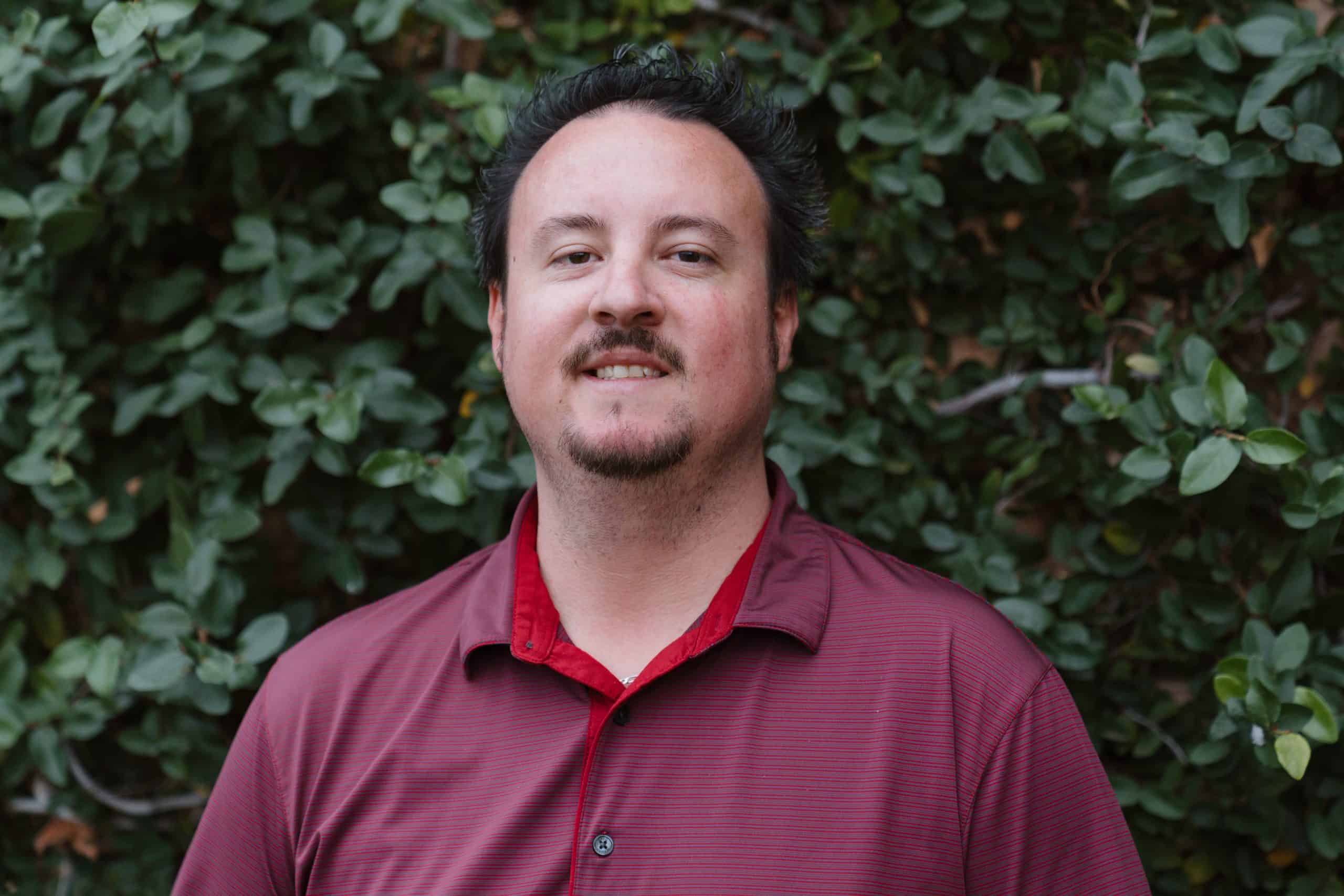Personality Disorder Treatment

Mental health is a key component of how we function on a day-to-day basis. Here in Arizona, over 1 million adults have a mental health condition. Of those adults, over 300,000 were unable to receive the treatment they needed within the past year. Part of this stems from not having the resources to access help, but the other half can come from a lack of education in our community.
That’s why, at Pinnacle Peak Recovery, education is an important component of our comprehensive treatment programs. Today, we’ll be discussing personality disorder treatment and how we can empower you to find healing.
In 2022 and 2023, over 1.4 million Arizona residents were living with at least one mental health condition.
What We Treat: Defining Personality Disorders
To know what a personality disorder is, it’s important to understand what exactly encompasses a personality to begin with. Our personalities include how we think, how we feel, and how we behave. Personalities are influenced during the course of our lives by our experiences, environment, and genetics.
If a person’s way of thinking and interacting with the world deviates greatly from what is considered “the norm” in a way that causes distress or impacts quality of life, this would be classified as a personality disorder.
How Are Personality Disorders Diagnosed?
When it comes to mental health condition diagnoses, there can sometimes be overlap in symptoms and experiences. During the diagnosis process of any mental health condition, professionals will take the time to rule out other causes of the symptoms. This could include giving the client a physical or even doing bloodwork.
Once other factors are ruled out, there are a few key components that will help confirm the diagnosis of a personality disorder. One of the biggest components is how long a person has been experiencing these behavior patterns. In order to be classified as a personality disorder, they often span a long period of time.
There are many classifications of personality disorder. To further determine what exactly a person is going through, we look at the following:
- Way of thinking about oneself and others
- Way of reacting to and controlling one’s own behavior
- Way of relating to and reacting to others around them
- Way of regulating and reacting to their own emotions
Let our mental health experts guide you to healing. Call us now to get started.
How We Treat: Pinnacle Peak’s Approach to Personality Disorder Care
There are various types of personality disorders, often involving antisocial, avoidant, and dependent behaviors that are not typical. Our approach involves an in-depth assessment to understand the specific personality disorder you are experiencing. Pinnacle Peak’s team of experts specializes in addressing these mental health conditions through various therapies, such as cognitive behavioral therapy and dialectical behavior therapy. You will be an integral part of your treatment plan, working with our team to find the best methods that work for you.

Cognitive Behavioral Therapy
Those with personality disorders often have difficulties with relationships and social situations due to negative feelings and thoughts. Cognitive behavioral therapy (CBT) is a method that acknowledges the existence of these thoughts and then works to change them. The result is positive and realistic behaviors, improving their overall quality of relationships.
Dialectical Behavioral Therapy
Dialectical behavioral therapy (DBT) is especially effective for treating personality disorders because it teaches you how to regulate intense emotions and improve relationships. DBT utilizes skills such as mindfulness, emotional regulation, and interpersonal effectiveness to promote more stable and constructive behaviors. With ongoing practice, you will be able to reduce impulsivity, manage mood swings, and build healthier, more fulfilling connections with others.
Individual Therapy
Personality disorders are deeply rooted in the mind, and individual therapy provides a comforting space to explore all areas that are affected. This includes discussion of relationships, your own emotions, and how your daily routine goes each day. Through a strong therapeutic relationship, you will gain insight into your behaviors, identify triggers, and work toward healthier ways of relating both to yourself and others.
Pinnacle Peak offers personalized treatments for personality disorders, backed by science and compassion. We provide family and couples counseling as well as holistic practices, including yoga and meditation. This ensures you receive care from all levels – physical, mental, emotional, and spiritual.
What Are the Most Common Types of Personality Disorders?
In the DSM-V, or the Diagnostic and Statistical Manual of Mental Disorders, there are currently 10 listed types of personality disorders. We’re going to talk about the most common personality disorders we see come through our door so you have a better understanding of what they might look like and how they can impact a person.
Schizoid Personality Disorder
This personality disorder involves a person feeling detached from social relationships. They may show little emotion outwardly, or feel less than compelled to interact with others. People with Schizoid Personality Disorder don’t often seek close relationships with others and find little interest in the praise or criticism of those around them.
Dependent Personality Disorder
Those who have a Dependent Personality Disorder take the need for validation further. As the name implies, they feel dependent on others. This can take the form of frequent validation or even a need for assistance with basic needs. Those who are managing a Dependent Personality Disorder can find the decision-making process crippling and will rely on others to make decisions for them instead.
Narcissistic Personality Disorder
You may have heard of the term “narcissist” before, which is related to what this personality disorder stems from. Those with a Narcissistic Personality Disorder feel certain of their superiority over others. They don’t hesitate about exploiting people and have a very high self-worth.
At the same time, however, those with Narcissistic Personality Disorder can be extremely sensitive to negative feedback, judgment, and failure.
Antisocial Personality Disorder
As the name implies, those with an Antisocial Personality Disorder don’t have a high regard for others around them. They see no qualms in frequently manipulating others to get what they feel they deserve or are owed. Overall, they have little to no regard for others and aren’t afraid to lie or act impulsively regardless of consequences.
Borderline Personality Disorder
Borderline Personality Disorder, not to be confused with Bipolar Disorder, primarily impacts the way a person makes connections and relationships with those around them. Those with BPD might experience frequent instability in relationships. They can also experience low self-esteem and easily feel abandoned by those they care about.
Avoidant Personality Disorder
Those with Avoidant Personality Disorder will delay or refuse to make new connections with others out of fear of being rejected, or under the notion that they aren’t worthy of companionship. People might outwardly show signs of extreme shyness, sensitivity to criticism, and experience feelings of inadequacy.
You can live the life you want. Our long-term support is here to guide you to healing.
What Factors Can Lead to a Personality Disorder?
There is still much to learn about why certain mental health conditions form. Sometimes they start at birth and other times they crop up later in life.
This can be the case with personality disorders. On average the signs of a personality disorder start to appear during teenage and young adult years, but they can show up before and after that as well. While not fully studied, genes could be a contributing factor to the chance of having a personality disorder, too.
The biggest component of developing a personality disorder comes from the environment around you. Everything from their childhood and family member’s mental health, to experiencing trauma, can impact our minds and potentially lead to a personality disorder.

What Group Do Personality Disorders Impact Most?
There is no one demographic that is more impacted by personality disorders than others. Each individual personality disorder does have its own statistics, however. For example, obsessive-compulsive personality disorder is slightly more likely to occur in men than women.
Since the signs of a personality disorder commonly begin to appear as a teen or young adult, those age groups can be disproportionately represented in recovery programs. No matter your age or life experience, if you wish to receive help for your personality disorder, that help is available for you.



What Our Valued Patients Say

Personality Disorder Treatment and Management in Arizona
Just like we go to a doctor for a broken bone, there’s no shame in seeking help for your mental health. Utilizing a mental health treatment program should be seen as no different than going to a doctor for a physical illness. A skilled and trained medical team will determine your diagnosis and work with you to lay out a plan for healing.
If you’d like to get started with our mental health program, our Pinnacle Peak team is ready to help. With our compassionate care and family feel, you’re in good hands with us. Just give us a call at 866-377-4761 and we can get you started today.
Clinical Excellence | Compassionate Care | Family Feel
